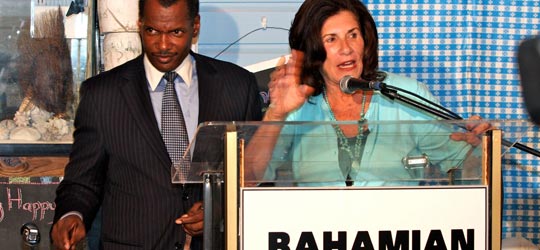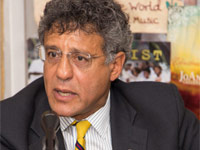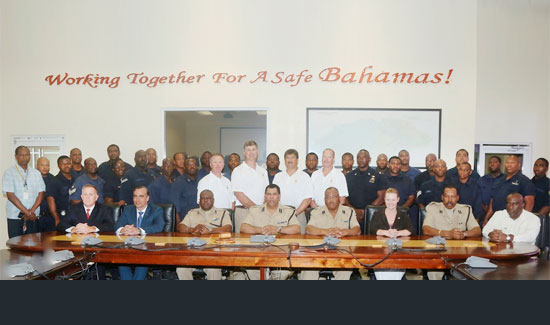
Declaring there are ‘no quick fixes’ to bolster education in a country that is a neophyte by comparison to nations whose schools and universities are hundreds of years old, Minister of Education Desmond Bannister outlined solutions he said would lift the level of education over the long term, including heightening parental involvement, creating a professional development school, managing discipline with conflict and dispute resolution and identifying good teachers with special concentration in critical subject areas.
“Finding the money, frankly, is easier than finding the teachers,” Bannister said, during this month’s Bahamian Forum, a platform founded more than 20 years ago by renowned psychiatrist and author Dr. David Allen to openly discuss matters affecting life in The Bahamas. The Bahamian Forum on Education was held at Barnacles, Sandyport, September 1, two days after government schools reopened. With national unemployment hovering near double digits, the teaching profession, said the minister, is begging for qualified people with too many having to be sought from outside The Bahamas.
Nearly one in every five dollars of the Bahamian budget goes to education, helping to run 161 schools, pay $154 million in salaries and support a capital budget this year of $17 million with another $22 million going to The College of The Bahamas. It is not dollars standing in the way of hiring. It is the dearth of qualified Bahamian teachers in special subject areas.
He urged more parental involvement, a factor he said was “absolutely critical” in a student’s success and the basis for what the ministry has called a “partnership with parents.” He also said the time has come to recognise that the system is becoming increasingly multi-cultural.
“We must dispel stereotypes and recognise that for many students, English is a second language,” said Bannister. “It does no good to play the blame game. This is the reality and we must address it.”
Bannister pledged additional programs for exceptional and special needs students and said campus security had been increased with CCTV (closed circuit television cameras) on high risk campuses for the first time. He fielded a wide range of questions from parents and educators on literacy, truancy, discipline and costs for physical education uniforms, school crest, ties and other supplies which Bannister said government purchased in order to “take the profit motive” out of necessary items to enter school — a charge that some have labelled ‘fees’, including Workers Party leader Rodney Moncur who declared the cost illegal and said it would be fought in court.
Nassau Institute’s Ralph Massey urged adoption of three objectives, including the creation of charter schools, calling them “an exciting alternative to the regular high school, one with a concentration on vocational and academic basics.”



